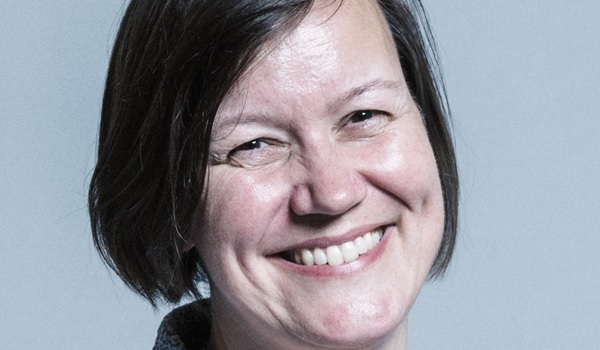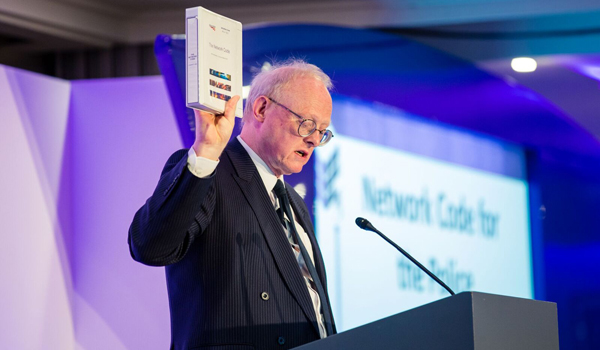Failures in reforming DBS reminiscent of ESN delays, MPs claim
The Home Office has been criticised for being four years late and more than £200 million over its original budget for the modernisation of the Disclosure and Barring Service (DBS).
In a report published on Friday (May 25), the Public Accounts Committee (PAC) said the DBS is charging customers £3 more than expected in 2012 and is building up a surplus “at the expense of its customers”.
The committee said the handling of the project has been a “masterclass in incompetence”.
Six recommendations were set out in the report, including the creation of a clear and realistic timetable for when modernisation will be completed along with details of the cost implications.
In 2012, the DBS replaced the Criminal Records Bereau, and a contract was signed with Tata Consultancy Services (TCS) to design, build and run a new IT system that would modernise its services.
However, the programme was delayed from the start, according to the PAC, and DBS had to extend its contract with Capita by two years.
The Home Office planned that DBS would have moved to modernised IT by March 2014 with full implementation completed by June, but as of April this year it is still not complete.
It also forecasted the total cost to be £656 million, but that estimation has since risen to £885 million due to delays in transition from Capita to TCS, delays implementing the modernisation service and changes to demand for DBS.
The committee told DBS it must set out precisely what benefits the programme will achieve by March 2019, how these will be measured, and how much of what was promised in the original business case will no longer be delivered before the contract ends.
It also said the modernisation programme seems unlikely to be completed before DBS’s contract with TCS expires in March 2019 as there is still no agreement for when further work will be completed.
“The issues on this project reminded us of what has gone wrong on the Home Office’s attempts to upgrade the Emergency Services Network,” the committee added.
The Home Office acknowledged that both programmes displayed an underestimation of complexity, a lack of understanding of risk, poor planning and a need to better manage the needs and expectations of stakeholders and customers.
It told the committee that it has since attempted to improve its project management skills and has strengthened and simplified governance of major projects.
PAC chair Meg Hillier said: “Government has a crucial role to play in safeguarding children and vulnerable adults but the handling of this project has been a masterclass in incompetence.
“None of the cost-saving and service benefits set out in the original business case have been achieved. At the same time, DBS has built up a projected surplus of £114 million.
“Negotiations affecting the future of DBS are under way and Government must monitor these carefully.
“It then needs to be straight with Parliament and the public about what, if any, benefits it expects to materialise by the time DBS’s contract with TCS ends.”
The Home Office’s business case for modernisation set out to deliver a range of benefits such as service improvements, portable disclosure certificates and lifetime savings of £37 million a year.
In 2012, the Government decided that DBS should introduce a new update service that would enable employers to check whether the information on a disclosure certificate was still up to date.
The Government assumed more people would choose to use this service, which would reduce costs and provide a better service for employers and the individuals whose records are checked.
However, the update service currently has around one million paying users, as opposed to the estimated 2.8 million.
Despite DBS charging its customers £13 a year for this feature rather than the £10 expected in 2012, it still loses £9 for every application due to the low amount of demand.
This loss is covered by profit from DBS’s disclosure certificates, as it charges £44 for an enhanced certificate, while each one costs just £37 to process.
The committee said the DBS should review “as a matter of urgency” the fee structure for all its products to consider how it can provide the same level of service for a lower cost for customers.
Ms Hillier added: “These are testing times for the Home Office. We continue to have serious concerns about its largest project, the Emergency Service Network, which is critical to the ability of our emergency services to do their jobs and keep citizens safe.
“The department also faces huge challenges arising from the UK’s departure from the EU – not least, potential threats to security at the border from day one of Brexit.
“On both DBS and ESN, the Home Office appears either to have ignored or not fully understood the needs of the end user.
“It does not fill us with confidence that all is rosy on the department’s other major projects. Although we received verbal assurances that they are running smoothly, these are not enough.
“We expect the Home Office to demonstrate that, when things go wrong, it has learned from and is acting on the lessons.”
The Home Office is currently overseeing a number of IT projects including the Law Enforcement Data Service, the Home Office Biometrics service, the Child Abuse Image Database and the National Automatic Number Plate Recognition Service.







